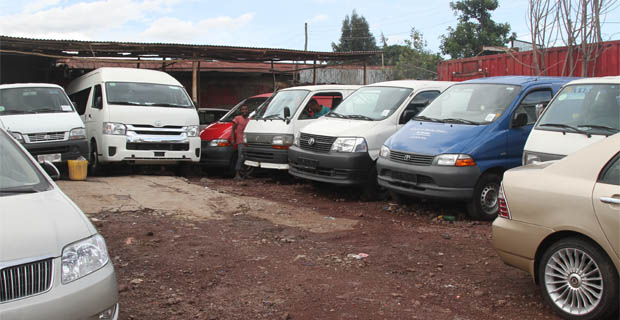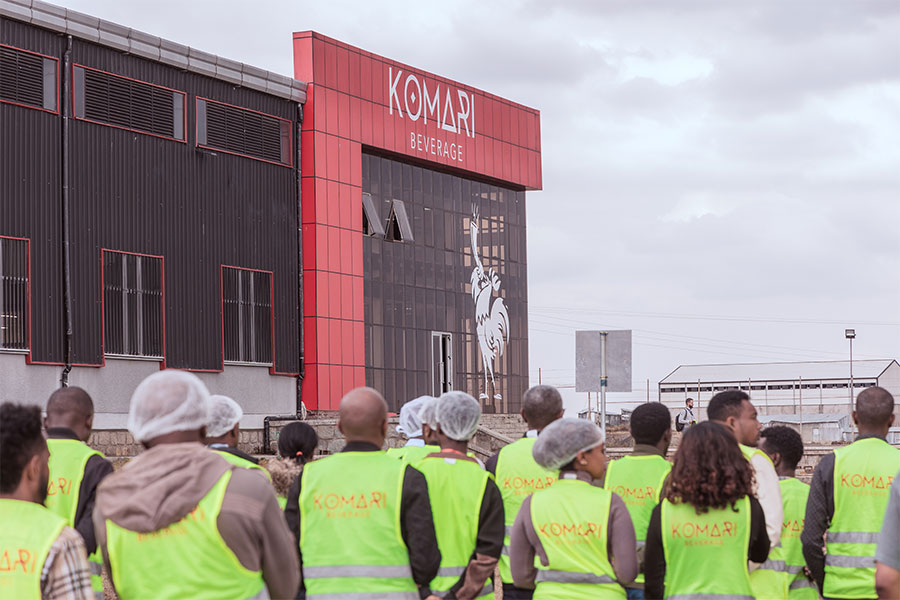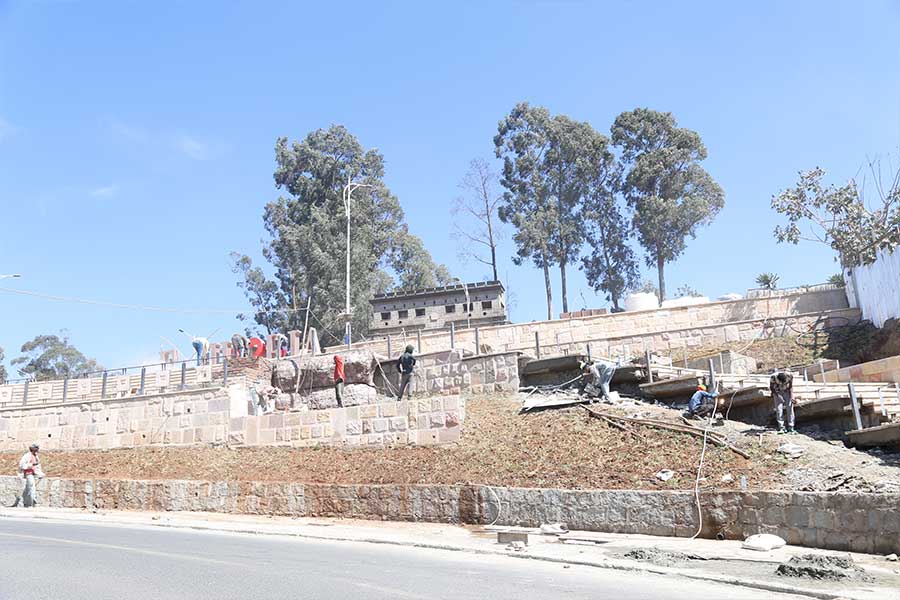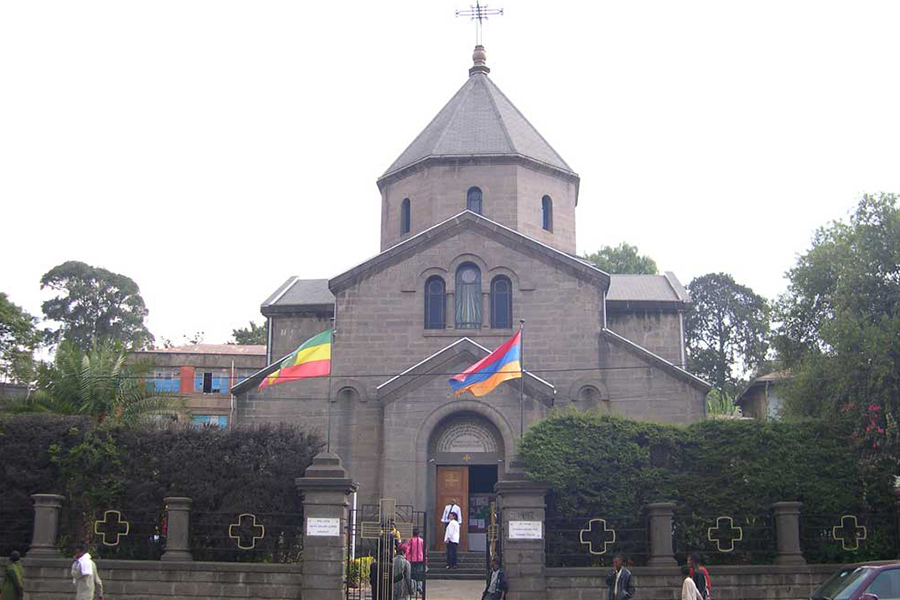
Mar 9 , 2024
By Shewangezaw Seyoum
It could be misleading to think that Ethiopia's battles to resolve its deep-seated issues are limited to its lack of political and economic reforms. They are fundamentally about cultural evolution, or their absence. Embracing change and encouraging unconventional ideas could help it chart a new course that acknowledges its complexities while harnessing its diverse potential. The journey ahead is undoubtedly intricate, but with a commitment to introspection, openness and inclusivity, Ethiopia can lay the foundation for a future marked by compromise, accommodation and civility.
As Ethiopia enters a new era, it faces continuing conflicts that mar its progress, contrasted with drought exacerbating an already dire economic and humanitarian crisis. The ongoing turmoil deepens the societal fissures and undermines the country's reputation on the global stage. Despite a history marked by revolutions and reforms spanning half a century, Ethiopia finds itself wrestling with pressing problems.
The enduring nature of these issues should raise critical questions about the country's ability to address fundamental problems related to security affairs and economic policies.
Among the myriad concerns are two prominent issues. Persisting conflicts seemingly rooted in insurmountable differences and economic struggles potentially attributed to resource scarcity are believed to have besieged the country. However, a closer exploration of these dimensions is essential for meaningful responses. Grievances are as diverse as the social and political factions, with a tendency towards mutual disregard fueling stormy rhetoric and further escalating into violence.
The cycle of conflicts often stems from a conviction in the legitimacy of one’s worldview over others, ignoring the potential for accommodating divergent views. History, however, demonstrates that societies harbouring more pronounced differences have successfully helmed their way to reconciliation.
Economically, the country has been gripped by a plethora of crises, seemingly anchored in the scarcity of resources ranging from food to foreign exchange. Yet, a deeper examination reveals that the crux of economic issues lies within the realm of production factors. With appropriate policies, the abundance of resources, as the potential of regions like Gambella and Benishangul can demonstrate, and a population exceeding 100 million, can be harnessed effectively.
Initiatives for economic policy reform may be plentiful. However, the gap lies in the policies' legitimacy in the public's eyes and the state's capacity to implement them.
At the heart of the political and economic quandaries are perspectives deeply rooted in cultural legacies. Shaped by recent and historical experiences, the legacy dictates societal norms and expectations, often blinding individuals to alternative realities. The cultural lens through which Ethiopians view their world represents the broader difficulty of recognising and addressing innate biases. The recent conflict in Tigray Regional State demonstrated the destructive impact of entrenched viewpoints, with significant human and economic costs that divert resources from vital development projects.
Ethiopia's obstacles are not insurmountable, nor are they primarily due to irreconcilable differences or a fundamental scarcity of resources. Rather, they are manifestations of deeply entrenched cultural perspectives. Addressing these requires a shift towards more accommodating viewpoints, beginning with critically reassessing existing paradigms. However, such introspection should merely be the starting point.
A transformation that extends beyond policy reforms is required. This should involve a cultural shift that embraces and encourages an environment conducive to divergent perspectives and unconventional ideas. Such approaches can potentially address immediate problems and lay the groundwork for paradigm shifts that can have far-reaching impacts. Ethiopians can deal with underlying issues simmering beneath the surface by encouraging dialogue and exploration across the dividing lines.
Ethiopia's path forward is fraught with uncertainties, yet this presents opportunities for profound transformation. By recognising the value of diverse perspectives and the potential for new ideas that transcend traditional boundaries, its people can begin to address the root causes of its security and economic problems. This requires a collective effort to move beyond rooted convictions, promoting a culture of openness and adaptability that can pave the way for enduring peace and sustainable development.
PUBLISHED ON
Mar 09,2024 [ VOL
24 , NO
1245]


Viewpoints | Mar 30,2024

Fortune News | May 25,2019

Fortune News | Dec 29,2018

Advertorials | Feb 26,2024

Sunday with Eden | Dec 31,2022

Commentaries | Dec 04,2021

Radar | Dec 26,2020

Viewpoints | Jun 17,2023

View From Arada | Apr 26,2025

Radar | Sep 02,2023

My Opinion | 131673 Views | Aug 14,2021

My Opinion | 128039 Views | Aug 21,2021

My Opinion | 126001 Views | Sep 10,2021

My Opinion | 123622 Views | Aug 07,2021

Dec 22 , 2024 . By TIZITA SHEWAFERAW
Charged with transforming colossal state-owned enterprises into modern and competitiv...

Aug 18 , 2024 . By AKSAH ITALO
Although predictable Yonas Zerihun's job in the ride-hailing service is not immune to...

Jul 28 , 2024 . By TIZITA SHEWAFERAW
Unhabitual, perhaps too many, Samuel Gebreyohannes, 38, used to occasionally enjoy a couple of beers at breakfast. However, he recently swit...

Jul 13 , 2024 . By AKSAH ITALO
Investors who rely on tractors, trucks, and field vehicles for commuting, transporting commodities, and f...

Jun 28 , 2025
Meseret Damtie, the assertive auditor general, has never been shy about naming names...

Jun 21 , 2025
A well-worn adage says, “Budget is not destiny, but it is direction.” Examining t...

Jun 14 , 2025
Yet again, the Horn of Africa is bracing for trouble. A region already frayed by wars...

Jun 7 , 2025
Few promises shine brighter in Addis Abeba than the pledge of a roof for every family...

Jun 29 , 2025
Addis Abeba's first rains have coincided with a sweeping rise in private school tuition, prompting the city's education...

Jun 29 , 2025 . By BEZAWIT HULUAGER
Central Bank Governor Mamo Mihretu claimed a bold reconfiguration of monetary policy...

Jun 29 , 2025 . By BEZAWIT HULUAGER
The federal government is betting on a sweeping overhaul of the driver licensing regi...

Jun 29 , 2025 . By NAHOM AYELE
Gadaa Bank has listed 1.2 million shares on the Ethiopian Securities Exchange (ESX),...